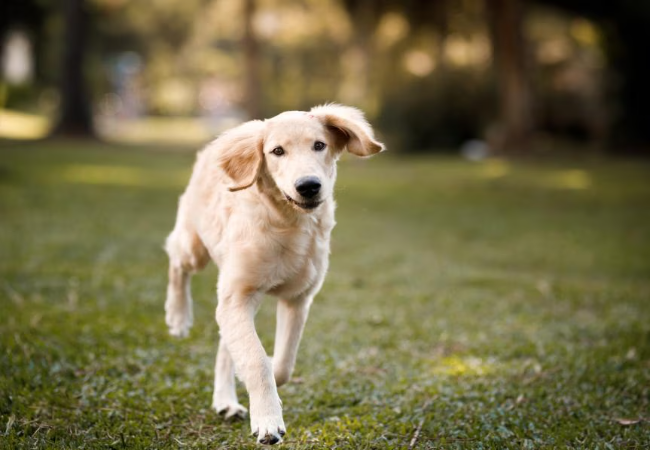Your Puppy at 6–9 Months 2025: Vet‑Reviewed Guide to Adolescent Growth & Care 🐾

In this article
Your Puppy at 6–9 Months 2025: Vet‑Reviewed Guide to Adolescent Growth & Care 🐾
By Dr. Duncan Houston BVSc
Between six and nine months, your puppy graduates into adolescence—a stage of big physical growth, bursts of energy, emotional testing, and behavioral shifts. This phase blends excitement with challenges, and proactive care—including refreshed training, balanced nutrition, socialization, and health checks—will set the stage for a confident adult dog. Here’s what to expect and how to support them using trusted tools like Ask A Vet
1. 🦴 Physical Growth & Development
Puppies in these months grow quickly toward adult size:
- By 6 months, growth slows; small breeds nearly full-grown, medium/large breeds continue to fill out through 12+ months.
- By 9 months, many reach 80–100 % adult height and may still develop muscle mass.
- All adult teeth should be present; retained baby teeth may require removal—consult Ask A Vet if needed.
Tip: Monitor body condition to ensure balanced growth—your vet or Ask A Vet app can guide food portions to avoid excess weight. 👌
2. 🧠 Behavior & Training Refresh
This “teenage” phase brings testing of boundaries, willfulness, bursts of energy, and renewed chewing tendencies:
- Expect independence and possible lapses in recall or obedience—stay consistent and calmly reinforce previous cues.
- House training should be mostly reliable, though accidents may reappear—respond with patience and clean-up using enzymatic cleaners to prevent repeat marking.
- Impulse control games like “drop it” and “leave it” help curb mouthing and inappropriate chewing.
- Continue obedience commands—sit, stay, come—and introduce emergency recall for safety.
Support: Refresh training sessions (5–10 min daily),
3. 💛 Socialization & Communication Cues
While primary socialization wraps up early, adolescence still offers critical learning:
- Puppy uses nuanced body language—ears, tail, posture—to express feelings; guide them gently during interactions.
- Leash manners are important—strangers, dogs, or wildlife can be triggers; practice loose-lead in quiet environments.
- Socialize with vaccinated dogs gradually, ensuring calm greetings and respectful play.
Reminder: Adolescence isn’t the end of learning—continue exposure to varied settings, textures, sounds, and positive experiences. Ask A Vet can help if concerns arise.
4. 🍎 Nutrition & Weight Control
Growth slows but calorie needs remain elevated:
- Continue feeding age-appropriate puppy food—transition timing depends on breed size: small breeds ~9–12 months; large breeds up to 18 months.
- Avoid overfeeding—they’re prone to overeating at this age; treats should be <10 % of calories.
Pro Tip: Regular weigh-ins—at the vet or via Ask A Vet—ensure growth is gradual and healthy.
5. 💉 Health, Preventives & Spay/Neuter
- By 6 months, the vaccination series is complete—continue with annual/booster vaccines.
- Spay or neuter based on breed-specific timing—small breeds ~6 months, larger may wait until later to ensure full skeletal maturity.
- Heartworm, flea, and tick prevention remain essential; adjust doses with growth.
- Routine grooming—brush, bathe as needed, clean teeth, trim nails—to habituate handling skills.
6. ⭐ Mental Stimulation & Energy Management
Adolescence often means boundless drive—without stimulation, they may get bored, destructive:
- Rotate tunnel toys, snuffle mats, and short agility courses to challenge minds and bodies.
7. 📅 Sample Daily Routine
| Time | Activity |
|---|---|
| 7 AM | Potty → Feeding → Quick play & training |
| 9 AM | Walk or puzzle toy enrichment |
| 12 PM | Potty → Lunch → Nap |
| 3 PM | Training session |
| 6 PM | Exercise or playdate |
| 8 PM | Evening potty, calm cuddle time |
8. ⚠️ Common Challenges & Solutions
- Recall failures: Practice emergency recall in low distraction; reinforce success with high-value treats.
- Marking behavior: Spay/neuter timely, clean areas, and redirect during attempts.
- Excess energy: Increase exercise sessions and interactive play.
9. 🎓 When to Seek Expert Help
- Unmanageable aggression or fear-based behaviors.
- Persistent house-soiling or anxiety.
- Hyperactivity despite adequate stimulation.
Behavioral consults or trainer programs can help—but start with in-app support from Ask A Vet if you notice issues early.
10. ✅ Final Takeaways
- Adolescence is transformative—embrace development with refreshed training, nutrition, and structure.
- Consistency, positive reinforcement, and mental enrichment are key to shaping a balanced adult.
- Stay patient—this phase sets the foundation for lifelong confidence, trust, and companionship.






